This article was medically reviewed by Shari Forschen, NP, MA. Shari Forschen is a Registered Nurse at Sanford Health in North Dakota. Shari has worked in healthcare since 1996 and her expertise lies in acute care bedside nursing on a medical oncology floor. She received her degree from Medcenter one College of Nursing in 2003 and her Family Nurse Practitioner Masters from the University of North Dakota in 2014. Shari is a member of the American Nurses Association.
There are 10 references cited in this article, which can be found at the bottom of the page.
This article has been viewed 38,348 times.
Acid reflux, also known as hyperacidity, heartburn, and GERD (GastroEsophageal Reflux Disease) is caused by a release of stomach acid into your esophagus.[1] Though acid reflux is not usually a serious medical problem, it can be uncomfortable to deal with and can lead to more serious health issues, such as ulcers or Barrett’s esophagus. You may struggle to sleep when you have acid reflux, as you may experience a burning sensation in your chest, nausea, and pain that is amplified when you bend over or lie down.[2]
Steps
Taking Medication
-
1Get an over-the-counter antacid. These OTC drugs can help to neutralize the acid in your stomach and reduce your acid reflux. You should expect the drugs to provide relief for up to two weeks. If you do not notice an improvement in your symptoms after two weeks, you may need to see a physician.[3]
- Do not use antacids long-term as they can negatively affect your mineral balance and your kidneys. They can also cause diarrhea.
-
2Take H2 blockers. H2 blockers can help to decrease the secretion of acid in your stomach. You can find H2 blockers at your local pharmacy, including brands like Zantac, Pepcid, and Tagamet. Make sure you follow the instructions on the label. If the over-the-counter H2 blockers are not working, your doctor may be able to prescribe a higher dosage.[4]
- H2 blockers may cause constipation, diarrhea, dizziness, headache, hives, nausea, vomiting, or trouble urinating. If this happens, stop taking them and see your doctor.
- For serious side effects like difficulty breathing or swelling of the face, lips, throat, or tongue, call 911 or go to the emergency room.
Advertisement -
3Try Proton Pump Inhibitors (PPIs). PPIs block acid production in your stomach and can help to relieve your acid reflux symptoms. Look for PPIs at your local pharmacy, including esomeprazole (Nexium), lansoprazole (Prevacid), omeprazole (Prilosec), pantoprazole (Protonix), rabeprazole (Aciphex), dexlansoprazole (Dexilant) and omeprazole/ sodium bicarbonate (Zegerid). Always follow the instructions on the label.[5]
- Be aware of the side effects of PPIs, including headache, constipation, diarrhea, abdominal pain, nausea, and rash.
- Do not take PPIs long-term, as they are associated with a higher risk of osteoporosis-related fractures of the hip, wrist or spine.
-
4Look for foam barrier tablets. Form barriers are made by combining an antacid and a foaming agent. The tablet dissolves in your stomach and creates a foam that helps to prevent acid from entering your esophagus.[6]
- Currently, Gaviscon is the only foam barrier on the market.
Adjusting Your Eating Habits and Sleep Habits
-
1Identify any food triggers and avoid them. If you have chronic acid reflux, you may need to adjust your diet so you are not having any foods or beverages that could trigger acid reflux. Start a food diary (either on paper or on your smartphone), recording foods that you ate within one to two hours that then lead to symptoms of acid reflux. You can then remove those foods from your diet so your body is not triggered by them.
- For example, maybe you ate breaded chicken, broccoli, and pasta in tomato sauce for dinner, then developed acid reflux.
- The trigger could be the chicken, the breading on the chicken, the broccoli, the pasta, or the tomato sauce. Leave out the tomato sauce the next time you make the meal.
- If you don't get acid reflux, the tomato sauce was likely the culprit. If you do, it's likely one of the other foods.
-
2Eat smaller meals and chew your food slowly. Eating smaller meals puts less stress pressure on your stomach, allowing your digestive system to function properly and reducing the amount of stomach acid disruption in your stomach.
- Also, chew your food several times before swallowing. This will help you digest more easily and quickly, putting less pressure on your digestive system.
- Try to have your meals two to three hours before bedtime. Eating earlier in the night will allow your stomach to digest the food properly before you lie down in bed.
-
3Do not smoke two hours before bedtime or quit smoking. Smoking can increase the acid in your stomach and increase your risk of acid reflux. If you are not able to quit smoking, try not to smoke at least two hours before your bedtime.
-
4Chew gum after a heavy meal, especially at night. Chewing sugar-free gum after meals can help to stimulate your salivary glands. This can then release bicarbonate into your saliva and help to neutralize the acid in your esophagus.[7]
-
5Raise the entire head of your bed. This will allow gravity to help keep the acid in your stomach and prevent it from rising into your esophagus. You will need to actually raise your bed frame or the top section of your bed. Piling pillows on your bed and laying on them will not help as much as this will cause you to bend your neck and body in a way that will increase the pressure. This can then make the acid reflux worse.[8]
-
6Do the “heel drop” 15–30 minutes before bed. The “heel drop” is used to treat a hiatal hernia but it can also be used to relieve acid reflux. This method can help to realign your stomach and your diaphragm.[9]
- First, drink 6 to 8 ounces of slightly warm water, then stand up and bring your arms straight out to your sides.
- Bend your arms at the elbows and bring both hands to meet your chest. Stand on your toes so your heels are lifted, then drop your heels down to the ground.
- Repeat this 10 times. After the 10th drop, keep your arms up and pant in short, quick breaths for 15 seconds.
Using Natural Remedies
-
1Have ½ cup organic aloe vera juice one to two hours before bed. Aloe vera can help to reduce inflammation and help to neutralize the acid in your stomach.
- You can also sip aloe vera throughout the day. Limit yourself to one to two cups a day total, as aloe vera can act as a laxative.
-
2Consume organic apple cider vinegar in water one to two hours before bed. This method uses your body’s own acid sensors to signal it is time to shut down acid production in your stomach. Have 1 tablespoon of organic apple cider vinegar in six ounces of water.
- Try making your own lemonade or limeade to drink before bed. Mix a few teaspoons of pure lemon or lime juice and add water to taste. You can also add honey to the drink.
- Consume the lemonade or limeade during and after meals. The acid in the lemon or lime will tell your body it’s time to shut down acid production.[10]
-
3Have an apple one hour before bed. The pectin in the skin of the apple is a natural antacid that can help to keep acid production in your stomach down.[11]
-
4Drink ginger tea, fennel tea, or chamomile tea one to two hours before bed. Ginger tea is a natural anti-inflammatory that can help to soothe your stomach and can also relieve any nausea. Use ginger tea bags or slice up one teaspoon of fresh ginger. Add the fresh ginger to boiling water and steep it for five minutes.[12]
-
5Dissolve mustard in water or have mustard on its own. Mustard can be a good anti-inflammatory and acid neutralizer. Drink mustard in water one hour before bed or have a teaspoon on its own.[15]
-
6Consume slippery elm one hour before bedtime. You can drink slippery elm (about three to four ounces) or take two tablets of slippery elm before bed. Slippery elm can help to soothe irritated tissues.
- Slippery elm is considered safe for pregnant women.[16]
-
7Have licorice root. You can get licorice root (DGL) in chewable tablets. It may take some getting used to the taste of licorice root but it can work well to heal your stomach and control acid in your stomach. Have two to three tablets before bedtime.[17]
-
8Drink baking soda dissolved in water an hour or so before bedtime. Baking soda can be effective for neutralizing the acid in your stomach and relieving the symptoms of acid reflux. Make sure you use baking soda, not baking powder, as baking powder can be less effective. Dissolve a teaspoon of baking soda in six ounces of water and drink it one hour before bed.
References
- ↑ https://my.clevelandclinic.org/health/diseases/17019-gerd-or-acid-reflux-or-heartburn-overview
- ↑ https://my.clevelandclinic.org/health/diseases/17019-gerd-or-acid-reflux-or-heartburn-overview
- ↑ https://my.clevelandclinic.org/health/diseases/17019-gerd-or-acid-reflux-or-heartburn-overview
- ↑ https://my.clevelandclinic.org/health/diseases/17019-gerd-or-acid-reflux-or-heartburn-overview
- ↑ http://www.medscape.com/viewarticle/804146
- ↑ http://www.medicinenet.com/gastroesophageal_reflux_disease_gerd/page9.htm
- ↑ Brown R, Sam CH, Green T, Wood S.Effect of GutsyGum(tm), A Novel Gum, on Subjective Ratings of Gastro Esophageal Reflux Following A Refluxogenic Meal. J Diet Suppl. 2015 Jun;12(2):138-45.
- ↑ https://www.medscape.com/viewarticle/765033_4
- ↑ Jackson, SB. Gastroesophageal Reflux Disease. Top Clin Chiro (1995) 2(1): 24-29.
- ↑ Vemulapall, R. Diet and Lifestyle Modifications in the Management of Gastroesophageal Reflux Disease. Nutr Clin Pract . 2008 vol. 23 no. 3 293-298.
- ↑ Vemulapall, R. Diet and Lifestyle Modifications in the Management of Gastroesophageal Reflux Disease. Nutr Clin Pract . 2008 vol. 23 no. 3 293-298.
- ↑ Willetts, K. E., Ekangaki, A. and Eden, J. A. (2003), Effect of a ginger extract on pregnancy-induced nausea: A randomised controlled trial. Australian and New Zealand Journal of Obstetrics and Gynaecology, 43: 139–144.
- ↑ Vemulapall, R. Diet and Lifestyle Modifications in the Management of Gastroesophageal Reflux Disease. Nutr Clin Pract . 2008 vol. 23 no. 3 293-298.
- ↑ Petry JJ, Hadley SK. Medicinal herbs: answers and advice, Part 2.Hosp Pract (1995). 2001 Aug 15;36(8):55-9.
- ↑ Petry JJ, Hadley SK. Medicinal herbs: answers and advice, Part 2.Hosp Pract (1995). 2001 Aug 15;36(8):55-9.
- ↑ Petry JJ, Hadley SK. Medicinal herbs: answers and advice, Part 2.Hosp Pract (1995). 2001 Aug 15;36(8):55-9.
- ↑ Glick, L., Deglycyrrhizinated liquorice for peptic ulcer. Lancet. 1982 Oct 9;2(8302):817.
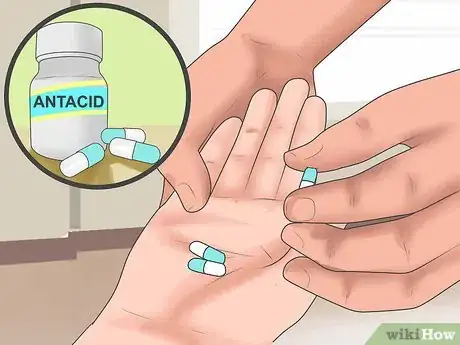
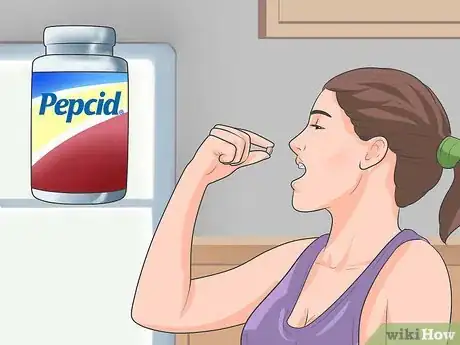

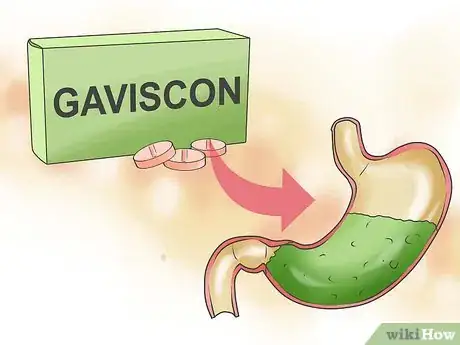



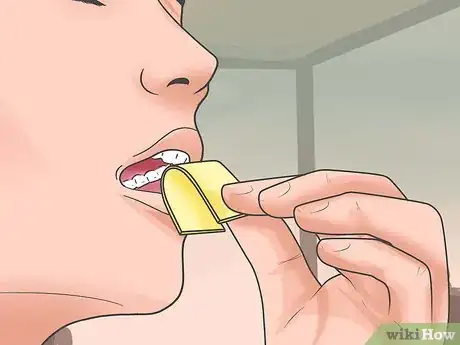

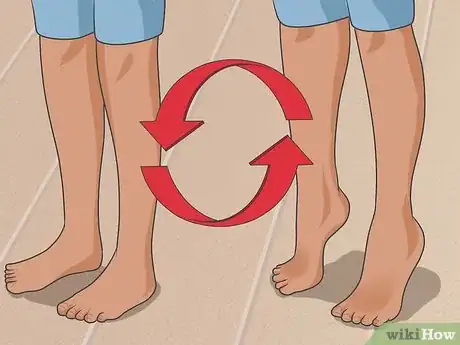
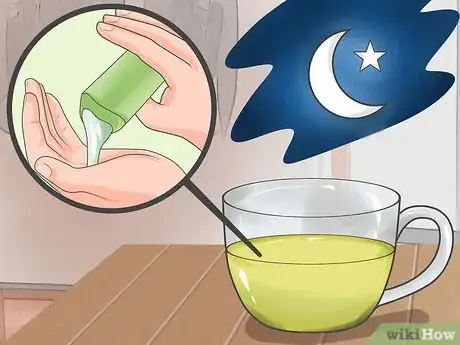


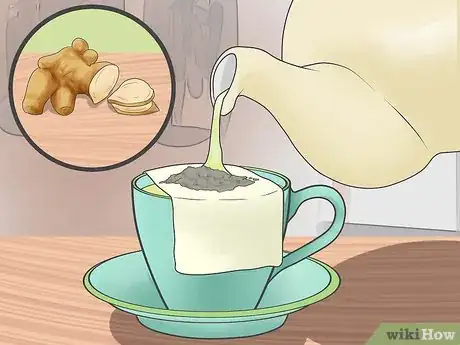

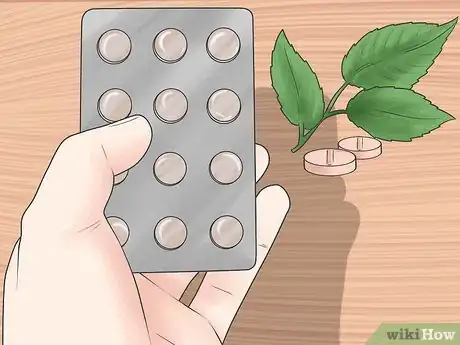
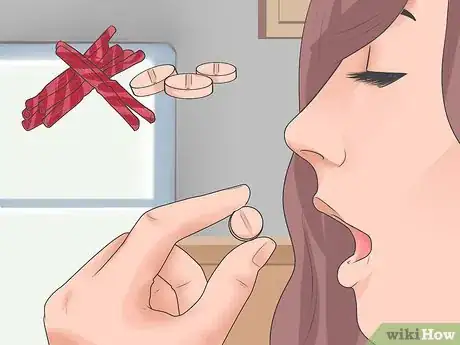
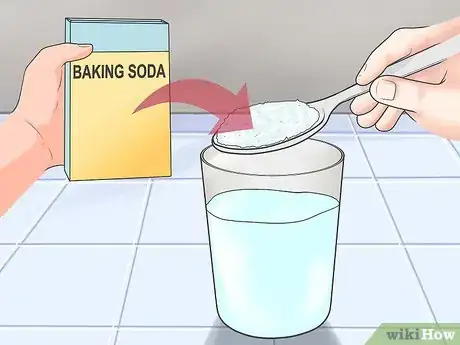




























































Medical Disclaimer
The content of this article is not intended to be a substitute for professional medical advice, examination, diagnosis, or treatment. You should always contact your doctor or other qualified healthcare professional before starting, changing, or stopping any kind of health treatment.
Read More...